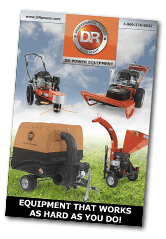Compost’s 4 Secret Super Powers
 If you’re a gardener, you’ve probably heard all about the benefits of composting: it reduces your household waste, it’s good for the environment, it saves you money on fertilizer, and on and on. Compost’s real power, however, is all the amazing stuff it can do for your soil. It truly is the best fertilizer and soil amendment you can use. Spread it on your veggie or flower garden and till it in to a depth of about 6 to 8 inches to get all these fantastic, natural benefits:
If you’re a gardener, you’ve probably heard all about the benefits of composting: it reduces your household waste, it’s good for the environment, it saves you money on fertilizer, and on and on. Compost’s real power, however, is all the amazing stuff it can do for your soil. It truly is the best fertilizer and soil amendment you can use. Spread it on your veggie or flower garden and till it in to a depth of about 6 to 8 inches to get all these fantastic, natural benefits:
1) Improve Your Soil Structure
Soil structure is the way sand, clay, silt, and organic materials are combined to create what we call “dirt”. If the soil’s structure is too hard and clay-like, plant roots will have a hard time penetrating it. If it’s too dry and crumbly, your plants will be thirsty all season. Adding compost introduces humus into the structure — organic material that’s in its most broken-down form. Humus contains proteins that bind soil particles together, making it resistant to compaction and able to better hold moisture and nutrients.
2) Add Nutrients
It’s no surprise to gardeners that plants need nutrients to grow. Adding compost to your garden soil introduces macro-nutrients such as phosphorus, nitrogen, and potassium, and micro-nutrients such as manganese, copper, iron, and zinc.
3) Reduce the Need for Watering
Every acre of land can retain 16,000 gallons more water for every 1 percent of its soil content that is organic material (compost). For a 1/4-acre garden, then, making just 1 percent of your soil compost means that it will retain 4,000 more gallons of water than without compost. This is especially important in drought-prone areas, but can benefit any gardener.
4) Prevent Plant Disease, Naturally
Recent research has shown that plants grown in compost-treated soil have fewer diseases and suffer less from pests than those grown without compost. While you still might need to take precautions to avoid pests and diseases that are particularly prevalent in your area, compost is a great way to up your chances of having healthy, happy plants.
And remember . . .
To get all the benefits of adding compost to your soil, it must be tilled in at least to the depth of your plants’ roots. For most gardens, a depth of 6 to 8 inches is sufficient. A rototiller that allows you to adjust the tilling depth will make this process much easier, and the result much more effective. The DR Roto-Hog Power Tillers not only allow you to make precise adjustments to the tilling depth, but are great for tilling existing weeds and other plant matter back into the soil, adding even more beneficial nutrients to your compost.
Want to learn more about the DR Power Equipment line-up?
Order your FREE catalog!

What's inside
- Information about the full line of DR equipment
- Money-saving promotions
- Product ordering information